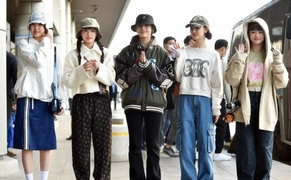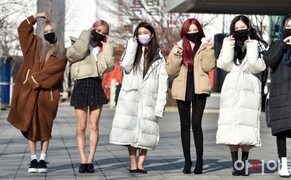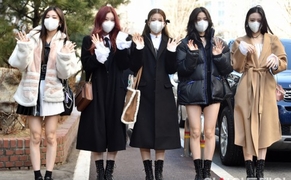"Iran is willing to restore its traditionally strong economic ties with Korea."
 Dr. Hooman Peimani, ResearchFellow at the Asia PacificEnergy Research Centre Dr. Hooman Peimani, ResearchFellow at the Asia PacificEnergy Research Centre |
The three-day visit of President’s Park Geun-hye to Iran was surely significant for its immediate achievement as signified in signing various agreements valued at over USD12 billion. However, its importance lies in its potential to turn Korea into one of the leading economic partners of Iran, and, quite possibly, the leading ones in certain fields, particularly, energy, auto making, transportation and high tech.
In its post-nuclear deal agreement with the G5 + 1, Iran has sought to end its international isolation and expand its circle of friends, which currently mainly consists of the developing countries with limited economic resources and technological capabilities to make them unable to meet Iran’s pressing needs.
In such situation, China is the major technology supplier to Iran and its single largest trade partner. Despite its large and expanding GDP to make it the world’s largest economy by the end of this decade, China is still mainly a technology-taker especially regarding Iran’s needed technologies such as energy, petrochemicals, rapid land transportation, air and space, computer and telecommunications.
Contrary to what the Western media portray, Russia is a minor economic partner of Iran and certainly not its major or even a reliable technology supplier. While it lacks certain non-military technologies and or its own ones are inferior to those of other developed economies (e.g., in energy and non-military telecommunications), its military cooperation with Iran has been limited with no major transfer of technologies.
Iran’s isolation and its needs to have friends at the UN Security Council has made Tehran close to Beijing and Moscow unjustified by their proven unreliability as its long-term friends as apparent in their joining all the Western-initiated UN sanctions on Iran, to include not only the nuclear ones but also those with a bearing on sensitive and especially military ones.
Iran’s developing countries’ friends with a degree of technological advancements, mainly, India, Brazil and South Africa, have limited capabilities to meet Iran’s technological needs while their reliabilities are questionable due to their extensive ties with the global powers putting sanctions on Iran.
Despite the growing exchange of high-level visits between Iran, the EU countries and Australia and the expressed interests in normalizing Iranian-Canadian ties on both sides, it is unrealistic to expect a miracle in Iranian-Western relations in the foreseeable future. Even though their bilateral ties, particularly economic ones, will certainly expand, these relations will grow within certain limits. The seemingly-resolved nuclear issue is just one allayed Western concern about Iran and, as controversial as it may sound, not the major one since Iran’s alleged work towards developing nuclear weapons has always been a potential threat not an expected one.
In fact, the main Western concern has been Iran’s emerging as a strong regional power with natural ties with its surrounding regions of strategic interests to the West where it can expand easily once it overcomes its current economic and technological deficiencies. Although the Iranian government has blamed the Western sanctions (covering a wide-range of military and non-military fields in place since the foundation of the Islamic Republic of Iran in 1979) for all its economic problems, these sanctions have only worsened the situation created primarily by the Iranian government’s mismanagement and rampant corruption.
Hence, the Western fear is, Iran’s current success in expanding its influence in parts of its neighboring regions will be sustainable and grow way beyond the affected countries (e.g., Afghanistan, Iraq, Syria, Lebanon and Yemen) and regions once Iran’s internal dynamics give birth to a competent political system. The latter should be able to mobilize the country’s vast human, minerals, energy and land resources to restore Iran’s lost eminence as a global and regional power with several centuries of experience in a new form commensurate with the current time. For this matter, Iranian-Western relations will retain its limits for as long as this concern persists to confine them to non-sensitive and thus no-high-tech areas with no major transfer of technology, by and large.
Given this reality, Iran will seek other partners while embracing the available ones. Over-reliance on its existing partners (developing ones in addition to China and Russia) for trade and technology will not likely be replaced with that on primarily the EU and, to a much less extent, Australia and Canada in absence of the USA whose extensive and reliable relations with Iran are not in the horizon in the predictable future.
Against this background, Iran needs to look at Asia’s major advanced economies (Korea and Japan) to balance its relations and meet its unsatisfied needs. Korea could especially benefits of this opportunity and realistically aims at a lion share of Iran’s large and rich market for the following reasons.
Seoul has enjoyed excellent tension-free relations with Tehran since the two countries established them in 1962. These relations have passed the test of reliability as non-Arab Iran supplied Korea with oil when all the members of the Organization of Arab Petroleum Exporting Countries (OAPEC) stopped their oil exports to it. Seoul’s naming a major street after Tehran and Tehran’s naming one after Seoul in 1977 symbolically revealed the solid foundations of their bilateral relations demonstrated in expanding economic, particularly, industrial ones since the 1970s.
These relations have since continued although been reduced over the last decade or so not by choice, but force due to various restricting sanctions. Within the limits of its heavy reliance on the American military power in its dealing with Pyongyang, Seoul has tried to remain outside the Western hostile policies towards Iran and maintained good relations with Tehran while Iran has not taken sides with North Korea and condemned its nuclear tests despite its friendly ties with that country.
In the post- nuclear sanctions era, Korea seems to have a golden opportunity to build on its historically strong and close ties with Iran to turn itself into its major Asian developed trading partner. As evident in President Park’s successful conclusion of many agreements in Tehran covering economic, energy and security areas among others, Iran is willing to restore its traditionally strong economic ties with Korea. The expansion of such ties to a lion share for Korea requires Seoul’s focusing on cooperating with Iran on its areas of special interest such as fossil and nuclear energy, petrochemicals, domestic and international railroad networks and high-tech. Iran now seeks to end its over reliance on China and Russia in such areas while unwilling to give monopolies to the Western countries for their decades of hostile relations with Iran. Korea’s maintaining sustainable balance in its ties with its Western economic, political and military partners and Iran is the key for its achieving the mentioned prize.
▷Born in Iran, Dr. Hooman Peimani has over 25 years of experience working in both managerial and research capacities in the fields of energy security (covering both fossil and non-fossil energy) and regional security. Currently, he is a Research Fellow in charge of energy security projects and the Team Leader (Nuclear Energy) at the Asia Pacific Energy Research Centre in Tokyo, which is APEC’s energy institute.
Most Read
-
1
-
2
-
3
-
4
-
5
-
6
-
7





















